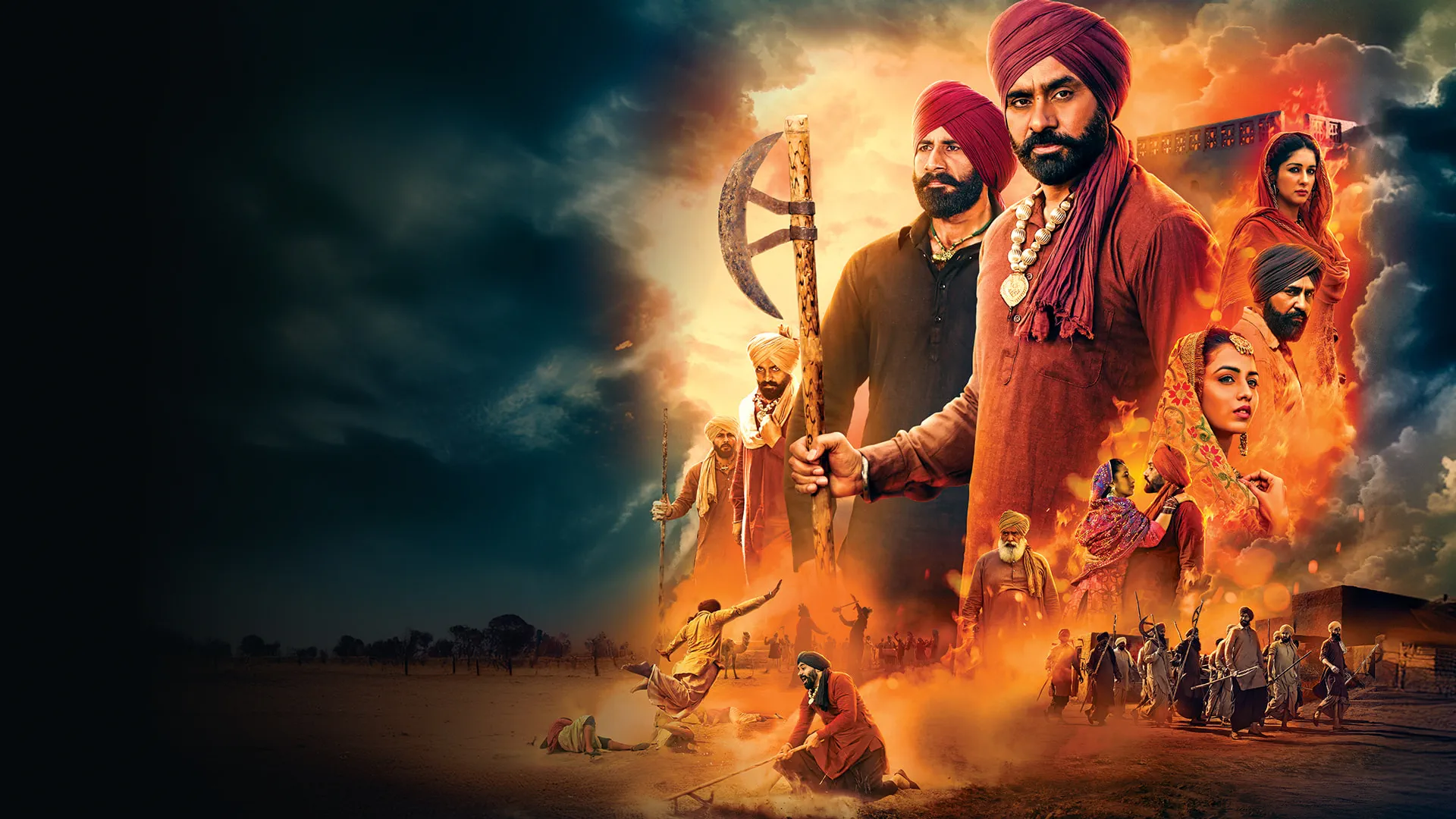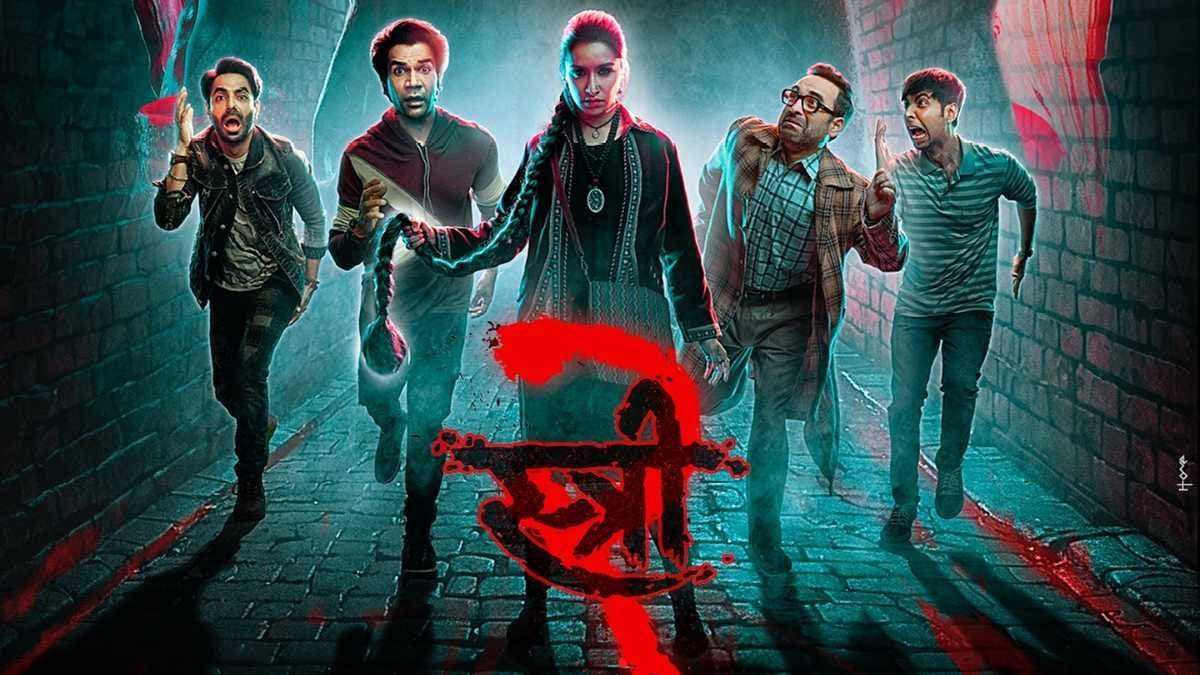Sucha Soorma (2024) Movie Review: A Stirring Tribute to a Forgotten Hero
In 2024, Bollywood released the historical drama Sucha Soorma, directed by Rajdeep Singh, which explores the life of Sucha Singh, an unsung hero of India’s independence movement. Unlike mainstream films that focus on well-known figures like Gandhi and Bhagat Singh, this film highlights the widespread spirit of sacrifice during that turbulent period, showcasing the contributions of lesser-known revolutionaries.
A Riveting Tale of Valor, Identity, and Sacrifice Introduction In 2024, Bollywood again came out with another thrilling historical drama, Sucha Soorma, which delves deep into the life of one of India’s unsung heroes. The film, directed by the creative genius Rajdeep Singh, unleashes upon its audience a tale about the life and time of Sucha Singh, a daring revolutionary of the independence movement of India.
While mainstream films have picked up larger-than-life heroes like Mahatma Gandhi, Bhagat Singh, and Subhas Chandra Bose, Sucha Soorma selects a relatively less famous protagonist to introduce the audiences to the spirit of sacrifice that was not limited to a few, yet spread across the length and breadth of the country during that period of turbulence.
This film is way more than a mere historical rendition; it is an emotional, absorbed account reflection of personal bravery, patriotism, and identity. In 2024, while the world is in turmoil and at an increased focus on historical narratives, Sucha Soorma is an opportune reflection of standing up for one’s belief, personal sacrifice in the service of the greater good, and an inbred love for the land.
But how does the movie rate in storytelling, performance, direction, and quality of production? Does it narrate Sucha Singh’s story, and can it keep up with other good Bollywood period dramas? Let’s go into detail in this review of the spectacle.
Plot Summary: A Hero Born from the Cracks of Colonial Oppression
Sucha Soorma tells the story of Sucha Singh, who begins life as a humble farmer and emerges as a revolutionary and a pivot in the struggle against British colonial rule. The early 1940s find the film tracing his journey from being a young, carefree man living in the rural heartland of Punjab to a fearless warrior driven by his burning desire for freedom.
The film opens with a rich view of pre-independent India, where the British colonial forces are mercilessly exploiting local resources and suppressing native culture, brutally smashing at the slightest hint of rebellion. Sucha Singh, played by talented Jassie Gill, is least interested in politics or the freedom movement. His life is about family, farming, and local tradition.
Everything changes when his village falls under a raid by the British army as part of a turn of events, and he sees merciless killings of all his family members. The trauma fumes his revenge and justice motives and gets him to a local band of freedom fighters led by a charismatic leader played by seasoned actor Jimmy Sheirgill. What ensues further is a hard struggle of guerrilla warfare, sabotage missions, and the sacrifices that Sucha makes for the bigger cause of Indian independence.
Sucha’s internal dilemma forms the heart of the film as he struggles between his love for his family and the call to serve his country. The subplot of romance is brought about by the lovely and talented Sonam Bajwa, who provides the humanizing perspective in this intense tale of what becoming a revolutionary really costs.
As the film rolls further, Sucha’s acts of defiance grow bolder, earning him a local hero status. His last and legendary act of bravery-wherein he single-handedly destroyed the supply line of British weapons-sealed his place in the history books as one of those forgotten heroes who fought for India’s freedom but were eclipsed by more renowned revolutionaries.

Direction and Screenplay: Rajdeep Singh’s Masterpiece
Rajdeep Singh is known for his attention to the finer details of history, along with emotional storytelling, and does an excellent job in Sucha Soorma. With his close attention to detail, the director does a great job of making the audience relive an era that was filled with great turmoil and uncertainty. Singh encapsulates the raw emotions of a people oppressed by colonial forces and complex relationships that exist inside a close-knit Punjabi community.
The pacing of the film is near-perfect, with the screenplay veering effortlessly between requisite intense action and moments of personal reflection. Singh resists the temptation to make his hero too perfect; Sucha Singh is shown as a man racked with doubt, weak in certain ways, and even afraid. This multi-dimensional character adds depth to it and saves the movie from merely becoming a jingoistic spectacle.
The most striking of all, however, is the cinematography by Mahesh Limaye. Limaye shoots the expanses, the dustiness of rural Punjab with breathtaking wide frames-the beauty of the land, the grimness of colonial occupation. His work during the action sequences, especially the guerrilla warfare scenes in dense forests and the climactic railway sabotage is particularly breathtaking.
Not to be left behind is the use of sound and music in the film. The background score by Amit Trivedi ebbs and flows with the tide of emotion through the story, while the songs themselves are steeped in the traditions of Punjabi folk, further lending an air of authenticity to the film, which enriches the historic environment.
Performance: Stellar Cast Gives Life to the Characters
Jassie Gill as Sucha Singh gives one of the best performances of his career. His character, Sucha, is multi-dimensional and projects how a carefree man becomes a hardened revolutionary. From those early scenes of fun where he was a happy-go-lucky farmer to those final sacrifice moments, Gill is brilliant as an actor. Conveying the deep pain to unshakeable resolve, he expresses a gamut of feelings with subtlety and restraint.
Another redeeming aspect was Gill’s physicality: convincing and raw, with the hand-to-hand combat and guerrilla warfare not akin to anything seen before. Unlike so many action heroes, who at times seem invincible, Gill’s Sucha Singh more often than not comes off as vulnerable, which in turn makes him even more inspiring.
Sonam Bajwa plays the love interest of Sucha, and although the role is pretty much subsidiary, she is memorable. Harpreet Kaur, was the emotional hub of the movie, showing what was sacrificed because of the revolution. The palpable chemistry with Jassie Gill just makes her scenes add more depth to Sucha’s character, showing often where love and duty fall apart in case of war.
Jimmy Sheirgill plays the role of the seasoned leader of the freedom fighters to perfection. He is Sucha’s mentor figure, and his relationship with him becomes the backbone of the revolution narrative. Sheirgill perfectly captures the brooding intensity of a man who knows the price for freedom is paid most often with blood.
The cast of the ensemble, featuring senior actors such as Rajesh Sharma and Kumud Mishra, lends gravity to the film. They are in leading roles while dictating the revolutionary narrative of the film, texturing the storytelling with enough heft to ensure the movie is not just the journey of one man but reflects a struggle for freedom collectively.
Historical Accuracy and Cultural Representation
The most admirable thing about Sucha Soorma is that it presents history quite accurately. Rajdeep Singh and his team did an immense amount of research to show the era with authenticity. The film takes us back in time when Punjab was leading all revolutionary activities, while its countryside was among the worst sufferers of the British retaliation against the freedom fighters.
The brutality of the British comes starkly into view but is not sensationalized. The film does not lump the British officers into the category of cartoonish villainy, showing instead in much detail the intricacies of the colonial apparatus-as such, the audience can understand why resistance is necessary and, equally dangerous.
Sucha Soorma does justice to the ethos of Punjabi culture. The film celebrates the vibrant community-centric life of rural Punjab-from their agricultural way of life to their folk traditions. Festival scenes, especially, are visually spectacular and come as a reliever for the heavy political drama.
The language, too, remains faithful to the land, as much of the dialogue is in Punjabi, which adds to the realism of this film. Here, the filmmakers balance using authentic dialects with making the film accessible to a larger audience by subtitling important conversations.
Themes and Subtext: More Than a War Film
On the surface, Sucha Soorma is a historical drama film about the freedom struggle of India, but the film also digs deep into universal themes of identity, duty, and sacrifice. Among other important things, the film asks, “What does it mean to be a hero?” Sucha Singh is neither born into a revolutionary family nor is he eager to die for his country. His is a tale of reluctance, tugged by personal tragedy. His character tells a story of a dilemma that always arises between personal wants and larger responsibilities.
It is also a mild critique of colonialism per se-not only as a regime of political control but also as something which eats away at the local identities and cultures consistently. Sucha fights not only against British rule but also against the loss of his life, family, and self.
Sucha Soorma also essays the streak of general resistance. While the story is about one man’s journey, it never forgets that India’s freedom was attained by the sacrificial toil of many nameless heroes, the small and insignificant sacrifices of countless people.
Conclusion: A Must-Watch for History Buffs and Movie Lovers Alike
Among a year full of larger-than-life superhero franchises and high-octane thriller flicks, Sucha Soorma comes across as a poignancy that reminds people of real heroism. It does not play on any spectacle acts but on powerful storytelling, emotional depth, and one hell of a performance courtesy of Jassie Gill. Rajdeep Singh has made a movie that pays ode not only to a forgotten hero but also to the themes that hold just as much relevance today as they did in the 1940s.
The film is a treasure trove in its full sense for historians, while it’s great storytelling and acting for film enthusiasts. Sucha Soorma is more than a movie’s tribute to the unsung heroes of India’s freedom struggle and a reminder that the spirit of resistance cuts across time and space.


Post Comment